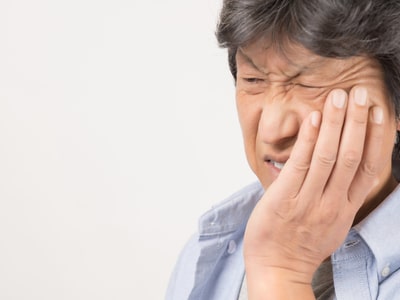 Have you ever wondered why those tiny, painful sores keep appearing in your mouth? If you’re wearing braces, you might have found the answer. Canker sores are a common issue for many people with braces. They can make eating, drinking, and even talking a painful experience. In this blog post, we’ll explore the connection between braces and canker sores, providing you with valuable insights and practical tips to manage and prevent these pesky sores.
Have you ever wondered why those tiny, painful sores keep appearing in your mouth? If you’re wearing braces, you might have found the answer. Canker sores are a common issue for many people with braces. They can make eating, drinking, and even talking a painful experience. In this blog post, we’ll explore the connection between braces and canker sores, providing you with valuable insights and practical tips to manage and prevent these pesky sores.
In This Post, We’ll Cover
- Understanding Canker Sores?
- How Braces Can Cause Canker Sores
- Preventive Measures
- Treatment Options for Canker Sores
- Long-Term Solutions and Adjustments
Understanding Canker Sores
Definition
Canker sores, also known as aphthous ulcers, are small, shallow lesions that develop on the soft tissues inside your mouth or at the base of your gums. Unlike cold sores, they don’t occur on the surface of your lips and aren’t contagious.
Symptoms
Canker sores usually start with a tingling or burning sensation a day or two before they appear. Once formed, they can be extremely painful and make eating, drinking, and talking difficult. Other symptoms include a round, white or yellow center with a red border, and they can range in size from small (less than 1 cm) to large (more than 1 cm).
Causes
While the exact cause of canker sores remains unknown, several factors are believed to trigger their development. These include:
- Stress and hormonal changes
- Nutritional deficiencies (e.g., Vitamin B12, iron, or folic acid)
- Food sensitivities (e.g., citrus fruits, spicy foods)
- Minor mouth injuries from dental work or accidental biting
- Health conditions like celiac disease or inflammatory bowel disease
And yes, wearing braces is a significant contributor.
How Braces Can Cause Canker Sores
Mechanical Irritation
Braces consist of brackets, wires, and bands that can rub against the soft tissues of your mouth, causing irritation. This constant friction can lead to the formation of canker sores, especially during the initial adjustment period.
Friction and Pressure
The pressure exerted by braces to align your teeth can cause discomfort and friction inside your mouth. This persistent pressure and movement can contribute to the development of sores, making it essential to manage and mitigate these effects.
Increased Sensitivity
Some individuals have more sensitive oral tissues, making them more susceptible to irritation and sores. If you’re prone to canker sores, wearing braces might exacerbate the problem, leading to frequent occurrences.
Preventive Measures
Orthodontic Wax
One of the simplest and most effective ways to reduce irritation from braces is to use orthodontic wax. Apply the wax to the brackets and wires to create a smooth surface, minimizing friction and preventing sores.
Proper Brushing Techniques
Gentle brushing techniques can help avoid additional irritation while maintaining oral hygiene. Use a soft-bristled toothbrush and brush in gentle, circular motions to clean your teeth and braces effectively.
Hydration
Staying hydrated is crucial for maintaining overall oral health. Drinking plenty of water helps keep your mouth moist, reducing the chances of developing canker sores and promoting faster healing.
Dietary Considerations
Certain foods can exacerbate canker sores, so it’s essential to be mindful of your diet. Avoid spicy, acidic, or abrasive foods that can irritate your mouth. Instead, opt for softer, bland foods that are less likely to cause discomfort.
Treatment Options for Canker Sores
Over-the-Counter Remedies
Several over-the-counter treatments can help alleviate the pain and discomfort associated with canker sores. These include mouth rinses, topical ointments, and pain relief gels. Look for products containing ingredients like benzocaine, hydrogen peroxide, or fluocinonide to soothe the sores and promote healing.
Home Remedies
If you prefer natural treatments, several home remedies can help manage canker sores. Saltwater rinses, baking soda pastes, and honey are all known for their soothing and healing properties. Rinse your mouth with saltwater or apply a paste of baking soda and water directly onto the sores for relief.
Professional Help
If your canker sores persist or worsen, it’s essential to consult your orthodontist or dentist. They can provide professional advice and recommend treatments tailored to your specific needs. In some cases, prescription medications or special mouth rinses may be necessary.
Long-Term Solutions and Adjustments
Regular Check-ups
Regular orthodontic appointments are crucial for ensuring your braces are adjusted correctly and minimizing discomfort. Your orthodontist can make necessary adjustments to reduce irritation and prevent the formation of canker sores.
Customized Solutions
Customized orthodontic solutions, such as specialized brackets or wires, can help reduce irritation and improve comfort. Discuss these options with your orthodontist to find the best solution for your needs.
Lifestyle Adjustments
Maintaining good oral hygiene and making necessary lifestyle changes can significantly reduce the occurrence of canker sores. Brush and floss regularly, use mouthwash, and avoid foods that trigger sores. Additionally, managing stress and ensuring a balanced diet can help promote overall oral health.
Conclusion
Canker sores can be a painful and frustrating side effect of wearing braces, but they don’t have to be a permanent issue. By understanding the causes and taking preventive measures, you can manage and minimize their impact on your life. Remember to use orthodontic wax, practice proper brushing techniques, stay hydrated, and be mindful of your diet. If canker sores persist, don’t hesitate to seek professional help contact our office for a free initial consultation





